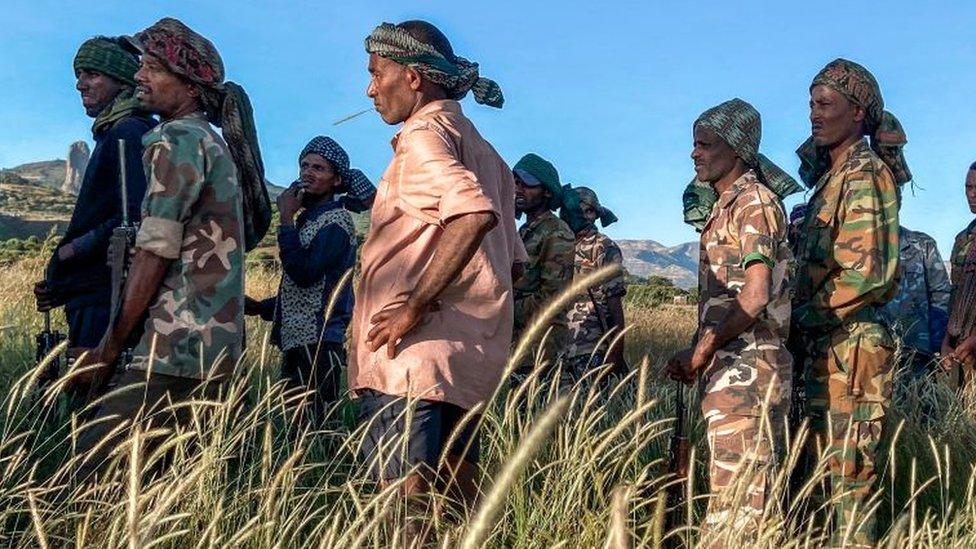Tigray crisis: Ethiopian soldiers accused of blocking border with Sudan
- Published
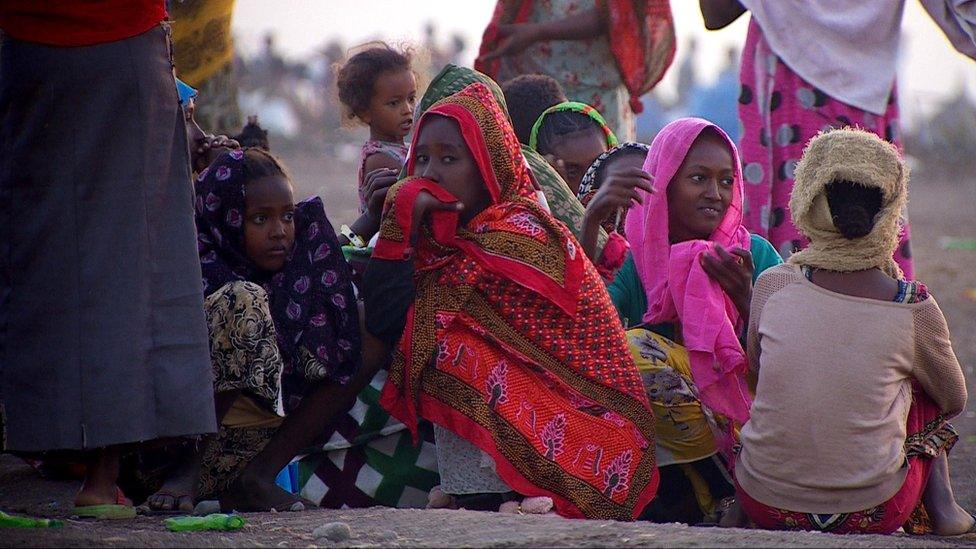
The number of refugees fleeing the northern Tigray region of Ethiopia - where federal and regional forces are engaged in fighting - has reduced drastically after soldiers were deployed to the border with Sudan.
The BBC first spotted the soldiers on Wednesday, at the Hamdayet border crossing point, and has been hearing testimonies from refugees who say their relatives are being blocked from leaving Ethiopia.
"I arrived yesterday morning and I wanted to go back home to bring my family here," said one man who did not want to be identified. Speaking on the banks of River Sittet in Hamdayet, he told the BBC he had been unable to return to Tigray to get his relatives because "there are soldiers on the border and those who had gone before me were asked not to return".
The Ethiopian government has not responded to repeated BBC requests for comment on the accusation.
Across the river that straddles the border, about a dozen soldiers stand at intervals on hilltops looking in the direction of Tigray. Boats parked on both sides of what is usually a busy crossing point are largely unused.
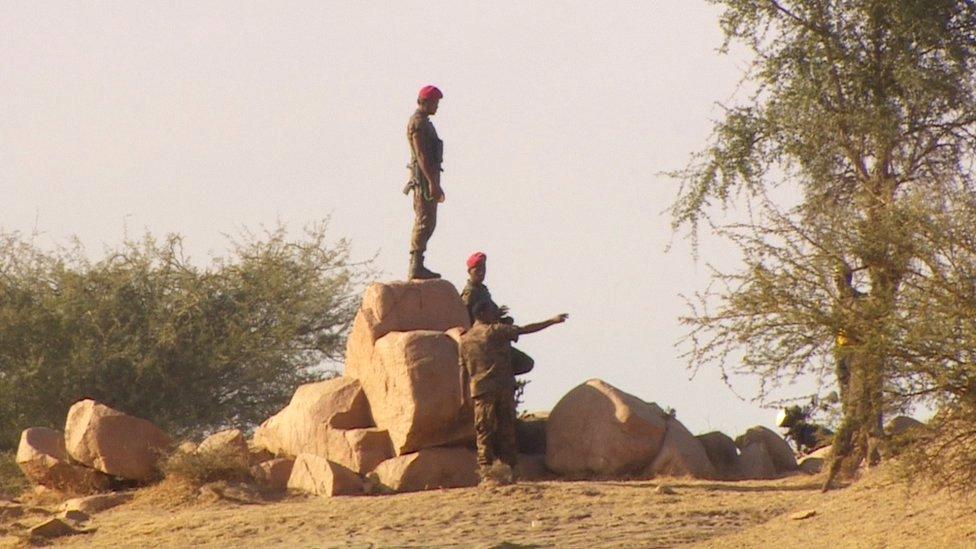
Ethiopian soldiers have been deployed at the border with Sudan
Dozens of refugees have gathered to look at the newly deployed federal soldiers on the Ethiopian side of the border. Others - both refugees and Sudanese - have been down to the river to fetch water or wash. A group of children have been swimming and playing in the water.
But mystery lies in the land beyond this river. An information blackout in Tigray has meant that separated families have been unable to communicate.
Human Rights Watch, quoting refugees who have recently arrived in Sudan, has reported that Ethiopian soldiers have been blocking civilians in Humera, about 20km (12.5 miles) from the border, which it says has resulted in "a massive drop in the number of refugees reaching Sudan".
Data from the United Nations High Commission for Refugees (UNHCR) shows that new refugee numbers peaked around 10 November, with more than 6,800 people crossing into Sudan in a single day. The average number arriving daily has been 3,000, officials told the BBC. However, since Ethiopian troops were deployed along the border, the number has dropped to about 700 a day.
"I had to spend the night in the wilderness,” this 11-year-old refugee says
An 11-year-old girl was among those who arrived before refugee movement was restricted. She fled alone from her grandmother's home, where she had heard gunfire - her grandmother was too old to run.
"I had to spend the night in the wilderness. I was frightened. I had no clothes and no money," she said. "After that I saw someone driving a tractor and begged him to drive me to the border."
Once she had crossed the Sittet river, she gave out her father's phone number. Father and daughter were reunited at the Um Raquba refugee camp on Wednesday. Her father, who walked around the camp protectively holding her hand, said she had witnessed people getting shot.
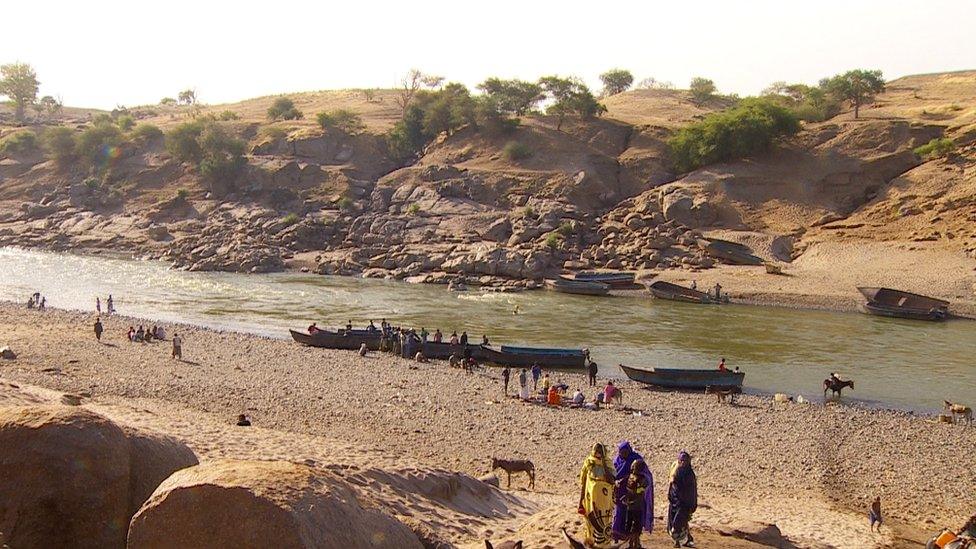
The River Sittet marks the border between Ethiopia and Sudan
Earth movers have been clearing ground for more construction at the camp, located about 70km from the border. A new World Food Programme tent was being set up when we arrived. Many refugees were also busy digging holes in the ground, mounting poles or covering the makeshift structures with wide mats to make new shelters.
In just three weeks, more than 43,000 refugees have fled into Sudan, according to the UNHCR. Aid agencies have been struggling to keep up with the rising numbers. "Our humanitarian response is overstretched," UNHCR said, adding: "Support is urgently needed."

The Ethiopian government appears keen not only to keep people from fleeing, but also to return any refugees to the country.
After meeting envoys from the African Union on Friday, Ethiopian Prime Minister Abiy Ahmed said in a statement that the government was ready to "receive, rehabilitate and resettle citizens that have fled by setting up four camps established to rehabilitate returnees before resettling them back into their original locales".
What he meant by "rehabilitation" was not immediately clear.

More on Ethiopia's Tigray crisis:

The federal government has also said it would provide humanitarian assistance access to refugees and displaced people in the northern Tigray region. Before the offensive was launched on 4 November, the region was already hosting about 100,000 Eritrean refugees in four camps, according to the UNHCR.
Last week, the organisation said it had not heard from staff in the camps in five days. "We are very worried," UNHCR spokesman Babar Baloch said in a statement, while calling for unimpeded access to the camps. "Rations were provided until the end of November, so it is increasingly critical for humanitarian workers to have access and for additional food to be distributed before refugees run out."
Three consequences of the ongoing crisis in Tigray
Back in Sudan, refugees remain in limbo. Some are waiting at the Hamdayet border crossing, hoping that their families will join them. Then, they could hop onto the almost daily convoys of lorries modified to carry passengers through the rugged terrain in eastern Sudan to refugee camps.
But in the camps, many also hope the crisis will be resolved soon, allowing them to get back to their normal lives - and children like the 11-year-old who travelled alone could return to school or play with their friends.
- Published29 June 2021
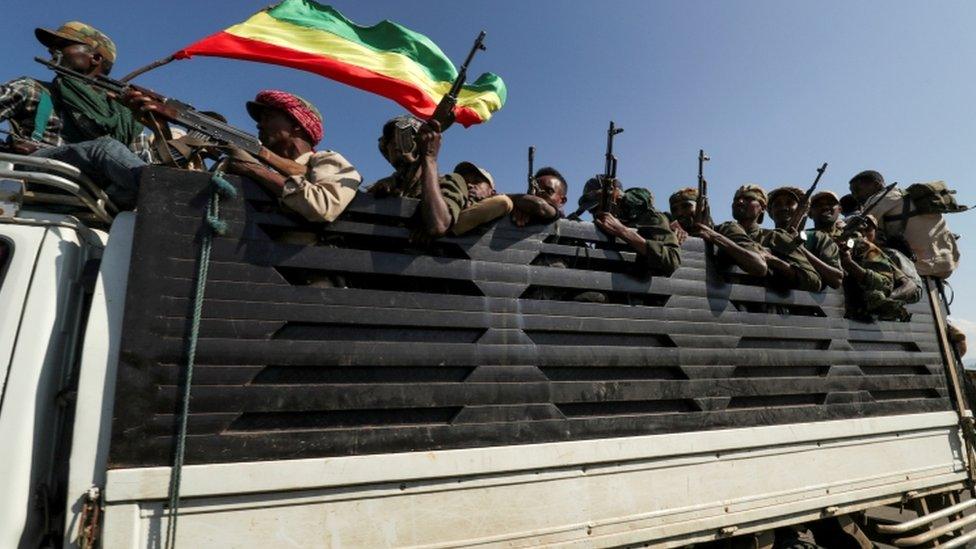
- Published27 November 2020
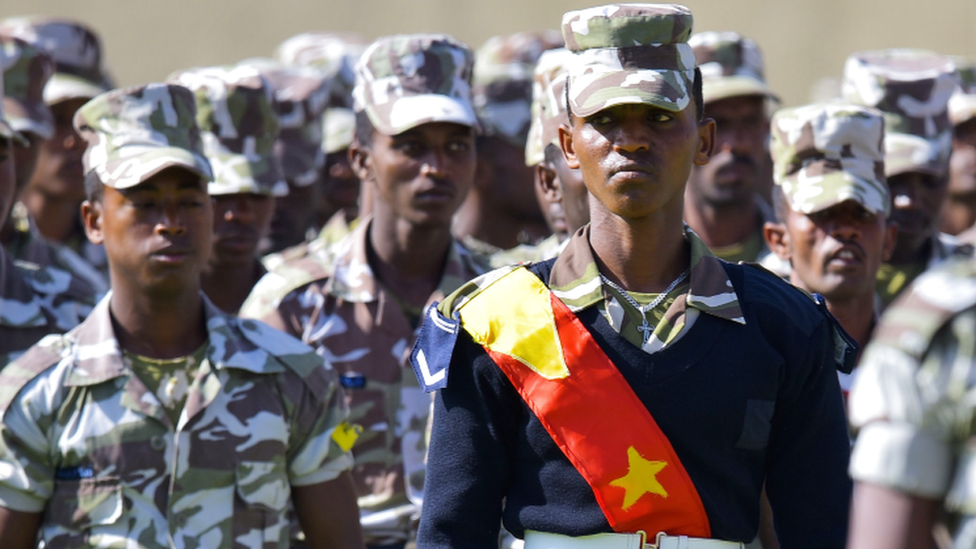
- Published26 November 2020
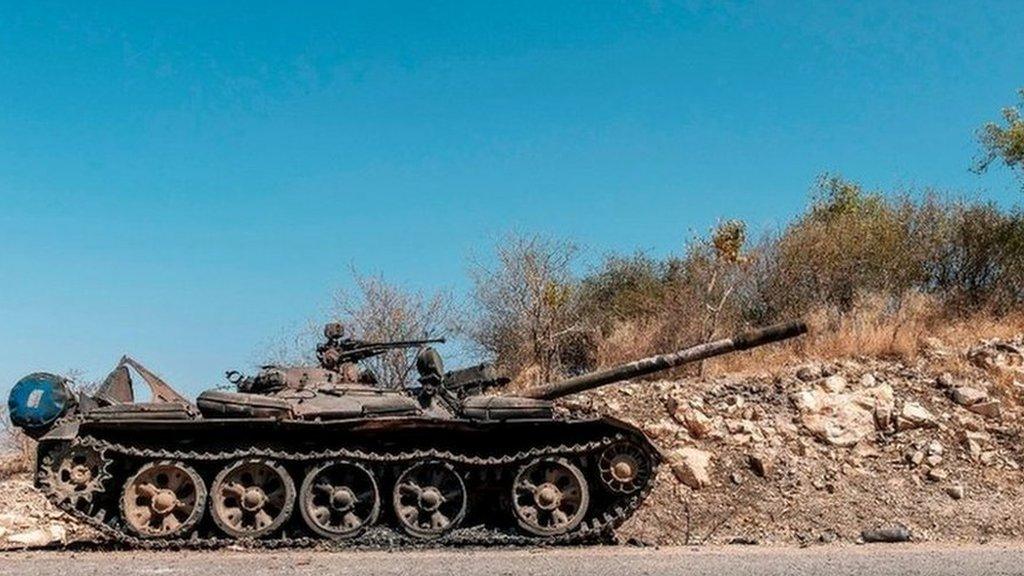
- Published22 November 2020
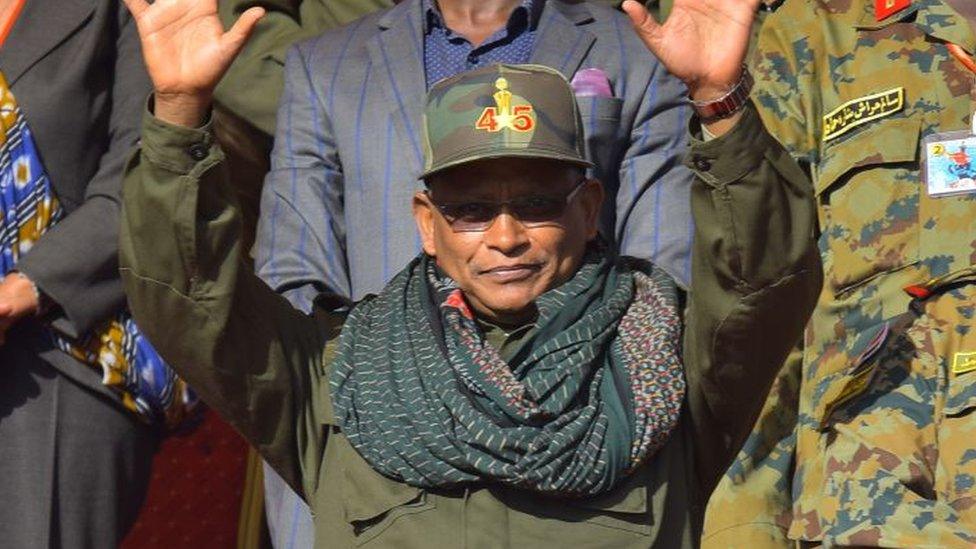
- Published20 November 2020

- Published13 November 2020
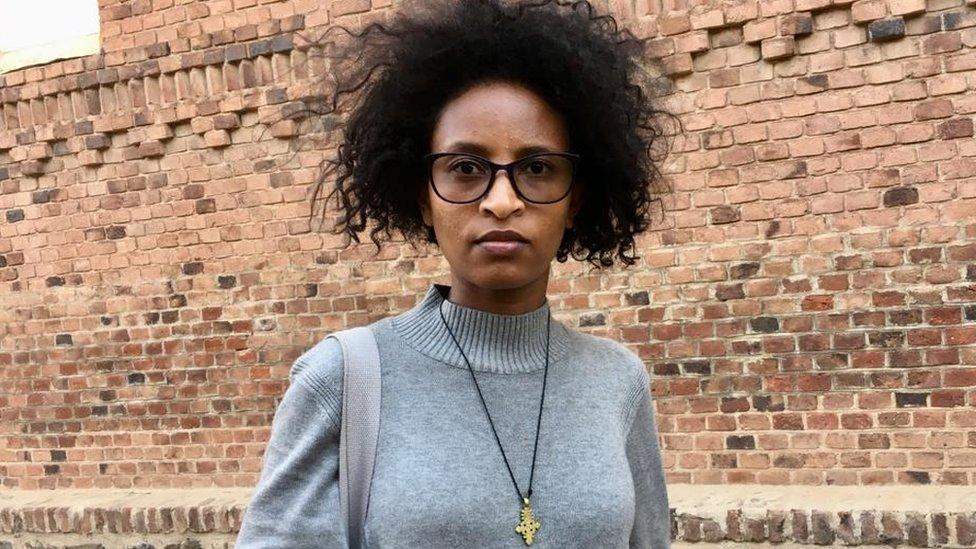
- Published14 November 2020
